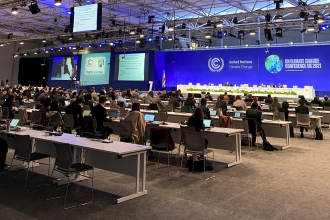Finance Day at COP26 - can we trust free-riders to cooperate?
Wednesday, November 3, 2021. It is Finance Day at COP26 in Glasgow. I enter the venue through one of the many gates in the fence surrounding the Blue Zone. Security personnel checks my badge and my daily Covid-test result before allowing me through.


